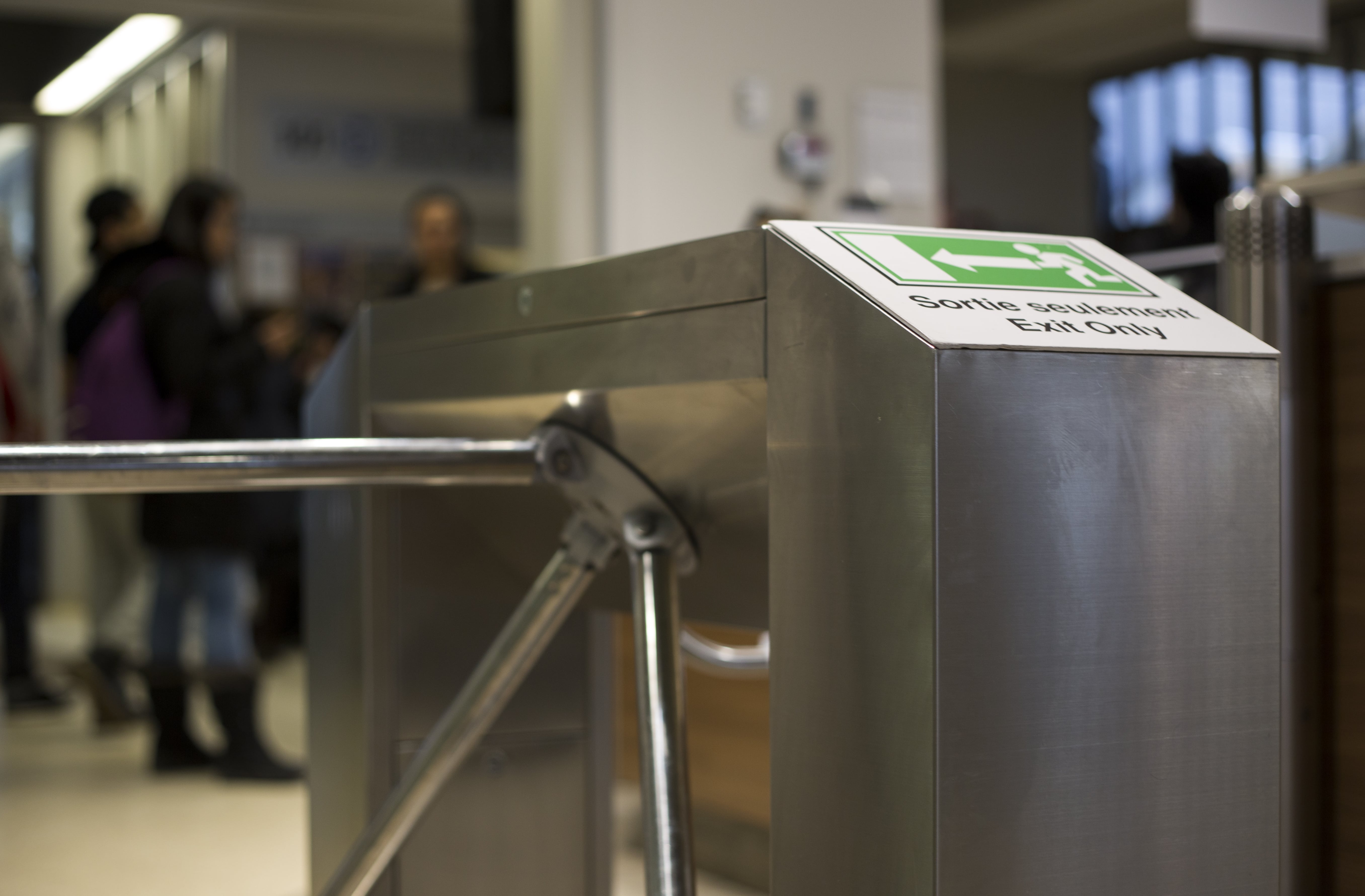24-hour dining hall limits access to non-meal plan students
While the University of Ottawa isn’t asking students to wear pink on Wednesdays, it is restricting access to its new 24/7 dining hall for students who don’t have a meal plan.
“Everyone is welcome—anyone can eat at the Dining Hall: students, professors, staff, even guests,” according to the Food Services’ website. However, students without meal plans will no longer be welcomed so readily.
Food Services’ customer service has confirmed additional restrictions that came into effect Jan. 9, which are not limited to higher traffic periods such as exams.
Myriam Hugron, marketing, communications and special projects officer for Food Services, said via email that people were turned away due to safety regulations.
“The Dining Hall has a 680-seat capacity, when we reach that number, fire safety regulations prevent us from exceeding that capacity and allowing more students in the dining hall until more space is created as students leave.”
Now, during mealtime changes customers could be asked to leave the dining hall and re-enter in order to pay for the next meal session if they wish to continue eating or sitting. Breakfast goes from 6-9:30 a.m., lunch from 9:30 a.m.-4p.m., and dinner from 4-9 p.m.
Hugron said that while as of yet no students have been asked to leave for this reason, that it could happen. “We are evaluating different possibilities but no policy has been adopted yet or set in place yet.”
Bags and backpacks are also no longer allowed in the cafeteria, there are cubby holes provided for students to leave them in.
The dining hall was opened in September 2015 amid some controversy among student groups due to the mandatory meal plans for most first-year students living in residence..
Restriction began during the previous exam session. However some students only became aware of these restrictions in the midst of exams upon attempting entry.
Anassi Manitou, a second-year French literature student who does not have a meal plan, was among the students on campus refused entry.
“I love this cafeteria, it’s a great change, I come here all the time. It was the beginning of the exams time and they wouldn’t let us come in because we didn’t have a meal plan,” he said.
“I had cash on hand and I had my student card in the other, and I’m like ‘I’m a student here, I have cash, I’m willing to pay and enter and you’re really going to turn me away?’ and they said ‘no, you need a card’. There was no explanation for it.”
“It did affect me and I didn’t come back here for a while. I was pissed off that this was the case,” said Manitou.
“In situations where demand far exceeds number of seats, we prioritize meal plan holders (5-day and 7-day) because the Dining Hall is the only location where they can use their meal plan,” said Hugron. “This is not a permanent policy. We have to be flexible according to the demand.”
Third-year international studies and modern languages student Amen Momodu, who also doesn’t have a meal plan, said she stopped going to the dining hall for a while when she heard students were being told to leave.
“Me and my friend lived here until they started kicking people out,” she said.
Momodu acknowledges that first-year students may have more of a need to eat at the cafeteria, but all students contributed to its construction.
“I guess I get it because first-years don’t have the option of going to cook the way upper-years would, but at the same time our tuition paid for it, so it’s annoying. I just feel like there’s a better way to go about it instead of denying people access,” she said.
Hugron said there will be more room to eat once the university’s new Learning Centre is constructed in 2017. She said there would be another food court there, with approximately 400 seats.





